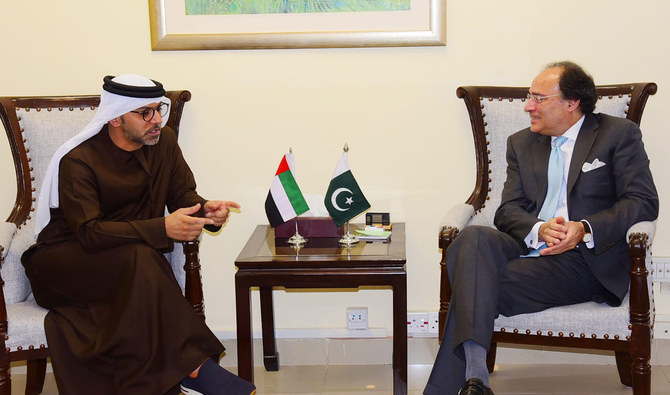ISLAMABAD: UAE’s Ambassador to Pakistan Hamad Obaid Ibrahim Salem Al-Zaabi and Finance Minister Muhammad Aurangzeb on Wednesday reaffirmed their commitment to strengthen bilateral relations and enhance economic cooperation between the two countries, the Finance Division said.
Pakistan and the UAE are close allies, with the Gulf nation being Pakistan’s third-largest trade partner after China and the United States. It is also viewed as an ideal export destination by policymakers in the South Asian country due to its geographical proximity to Pakistan.
Al-Zaabi called on Aurangzeb at the Finance Division to discuss bilateral relations and economic cooperation between the two countries, the division said.
“Both sides reaffirmed their commitment to strengthening bilateral relations and enhancing economic cooperation between Pakistan and the UAE,” the Finance Division’s statement said.
Aurangzeb discussed the progress made by the Special Investment Facilitation Council (SIFC), a hybrid civil-government body formed by Pakistan last year to attract international investment, particularly from Gulf countries, in its key economic sectors.
He highlighted the progress made with the government’s privatization program, specifically mentioning the privatization of the country’s national flag-bearer, Pakistan International Airlines (PIA).
“The Ambassador of UAE appreciated the measures being taken by the government to bring reforms in various sectors of the economy,” the Finance Division said.
Apart from being Pakistan’s close defense and economic partner, the UAE is also home to an estimated 1.8 million Pakistani expatriates and, after Saudi Arabia, is the second-largest source of remittances for the South Asian nation.















